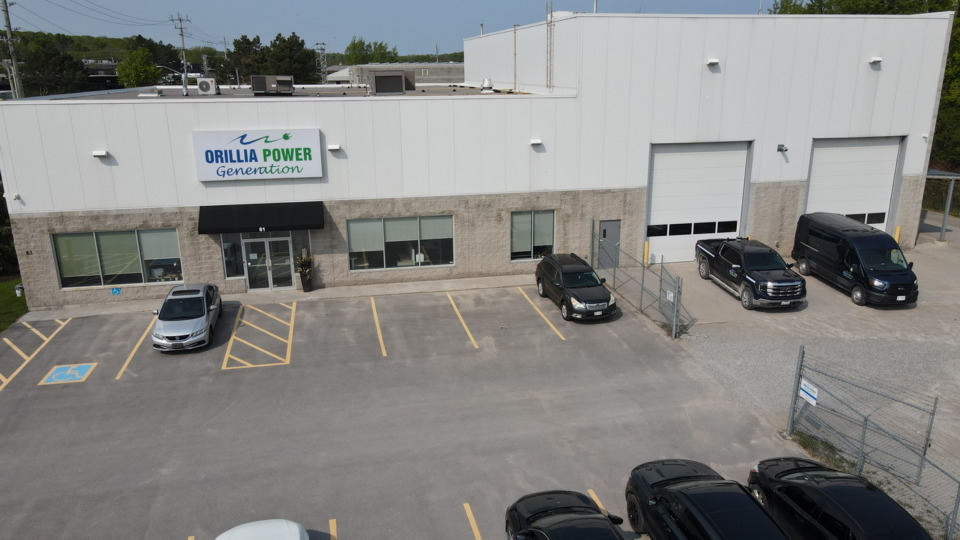City council narrowly voted down expanding the Orillia Power Generation Corporation (OPGC) board, in a move that would have added the mayor and the city’s CAO as voting members, after concerns were raised about a lack of consultation and “politicizing” the board.
After spending two-and-a-half hours in closed session at Monday’s meeting, council voted down most recommendations that came out of the discussion, which would have expanded the board from three to five members and set out new details regarding term limits for board members.
The only item council agreed upon was appointing Kirsten Walli to a three-year term on the board, and to consider developing diversity requirements and board/member evaluations.
Coun. Tim Lauer spoke strongly against the addition of two city officials, stating it would “politicize” the board and bring the city “close to a majority” in its composition.
Lauer also said that no consultation had taken place with the OPGC board on the move.
“I'm totally opposed to this. I don't believe the process has been proper or adequate. I don't believe there has been a full discussion. I don't believe we've talked to the people that are on the OPC board currently,” Lauer said at Monday’s meeting.
“I am opposed to loading that five-man board with city representatives, and when this idea came about … the idea was that you stock that board with people that have expertise in electricity, in running companies of this type," said the long-time Ward 4 councillor.
Lauer also stated there is an “inherent conflict of interest” with adding two city officials to the board, noting it would be more appropriate to add one, and another community member to round out the proposed expansion to five board members.
“They have to evaluate all kinds of things, (like) waterflow. They have to evaluate the condition of their equipment, and what repairs might be coming up, so they have to make some pretty hard decisions on what would be an appropriate dividend to pay back to the city,” Lauer said.
“I think we are in a better position when those people are keeping only in mind that particular organization’s concerns, as opposed to trying to feed into the bottom line of the city coffers.”
Though Coun. Jay Fallis expressed similar concerns, not all members of council agreed.
“I think at the end of the day, our constituents have placed us in a place to be able to make decisions on things that they might not be able to be part of on every single decision,” said Coun. Whitney Smith. “We trust our staff with everything else. I don't see why we couldn't trust our mayor and CAO in this as well.”
The motion to expand the board to five members, adding the mayor and CAO, was defeated in a 5-4 vote.
At Coun. David Campbell’s request, council also deferred making a decision on creating financial thresholds for capital expenditures, acquisitions, and entering into strategic alliances, at up to 25 per cent of the corporation’s net book value, until a later date.
Lauer told OrilliaMatters he is not opposed to expanding the board, which was originally suggested in 2021 by the previous term of council, as it can ensure there are enough available members at all times, while also allowing for “more diversity of experience.”
He said the current shareholder declaration states that “no board member will be an employee of the city, nor a member of council.”
“The shareholder declaration also states that if the shareholder (the city) wants to amend the agreement – they will consult first with the existing board before taking action. This has not happened,” Lauer said in a statement.
Lauer said the shareholder declaration is non-binding, but he still disagrees with the idea of putting the mayor and CAO on the board.
“We have been advised that the shareholder declaration is non-binding and that council is free to act at will. I do not agree with that notion – even if there is some legal loophole that would keep us out of court, I believe the spirit of the agreement would be compromised and the city would lose credibility,” he said.
Moving forward, Lauer said he has no issue adding additional members to the board following a “full discussion” with its current members, adding that he would like the new members to be sourced from the community.
“When the board was created, the thought was that the OPGC – given council-approved parameters – could best operate as an arms-length entity,” he said.
“In my opinion, that has proven to be true with the OPCG growing the company by over seven megawatts of green power and delivering a reliable dividend when water levels were adequate," Lauer explained.
“I have full confidence that this independent board has been prudent and cautious with one of Orillia’s most important assets.”
